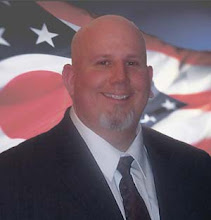As I've posted two or three times before, sometimes discussions get my brain rolling at unexpected times.
The following is two parts to an exchange with an old friend of mine on Facebook regarding a video to which I posted a link showcasing various Democratic members of Congress and notable Progressives in their own words.
My friend posted a comment in defense of Progressivism:
*****
Progressive: "A person who actively favors or strives for progress toward better conditions, as in society or government." - Don, I know you are frustrated when Libertarians are equated with Republicans, much like this equates Democrats with Progressives. This is a diverse political climate.
*****
Below is my customarily long-winded reply:
*****
I have no problem with political diversity (or diversity of any kind, for that matter). People with opposing viewpoints help keep one another's arguments honest and to the point on the issues at hand.
What I do have a problem with is when politicians (note, I specified "politicians") use a term such as "Progressive" and hide behind its literal meaning and the connotations the word fosters -- and while doing so, sweep its historical context under the rug.
The word Progressive -- as it relates to the Progressive movement which began over 100 years ago -- refers to a political philosophy that insists (not suggests, insists) that the average person lacks the cognitive capacity to decide for him or herself how to handle their freedoms, use their own private property, and decide on all matters relating to their life, liberty, and pursuit of happiness.
Progressives in the true sense of the term as it relates to governmental authority and oversight believe that for every conceivable action by individuals and free market entities there must be specific and comprehensive regulations along with a system in place requiring all to whom it applies comply with its pre-conditions (the proverbial red tape).
Where you and I disagree on Progressivism is its central notion that innovation and the prosperity it creates only can happen through extensive regulation and governmental intervention.
I maintain overreaching governmental interference inhibits true progress within markets by creating a business environment where only the largest of corporations can afford the expenses involved with compliance of federal laws -- thus squeezing out competition from smaller and independent companies. The competition from the smaller operations pushes their larger counterparts to improve their efficiency, update their business models, and keep their prices within a range that is affordable for customers and/or clients much more effectively than any bureaucratic federal office doling out subsidies, grants, or so-called stimulus.
Why do you think Wal-Mart endorsed the Democratic Party's health care reform law? They'll be able to afford dropping their employee insurance coverage plans and simply pay the so-called fine for letting their employees slide into the federal insurance exchange -- ultimately paying less in the long run and feeling less of a pinch on their bottom line. Competitors operating on a far smaller scale -- especially local independent vendors -- are going to take the biggest hits in terms of percentage of revenues as a result of the new federal mandate.
In this kind of business environment for retailers, who can any of us reasonably expect to step up and push Wal-Mart in terms of competition? The only chain I can think of that operates at nearly the same scale is Meijer. But who else? Who else on a nationwide scale is going to be able to keep Wal-Mart from becoming too bloated and big for its own good?
And, if we're only going to have two major retail chains available for the average customer, what do you think the odds are that they'll both be able to focus more lobby money toward legislation that relates to them?
Another good example is Goldman Sachs. We're seeing all this hoopla over mortgage-backed securities leading up to the housing bubble bursting yet the Treasury Department is run by a former GS executive and former GS employees have permeated the Treasury. They have done as much to capture their regulating agencies as the major oil companies have.
How is any of that good for our society?
*****
My friend's response is as follows:
*****
Do you go to Wal-Mart?
*****
Me:
*****
Yes I do, in fact.
But, I bring it up because I know that the vast majority of those who identify themselves as Democrats (liberal, progressive, or otherwise) view Wal-Mart as a corporate evil empire.
Which is why I mentioned them. What I want to know from those who hold the two views that 1) Wal-Mart is bad for society and 2) government regulation affecting corporate retail chains must be put in place is this:
How will passing laws that serve to make Wal-Mart immune from further competition help?
*****
I'll be sure to add any additional comments as they arise.
Subscribe to:
Post Comments (Atom)

No comments:
Post a Comment